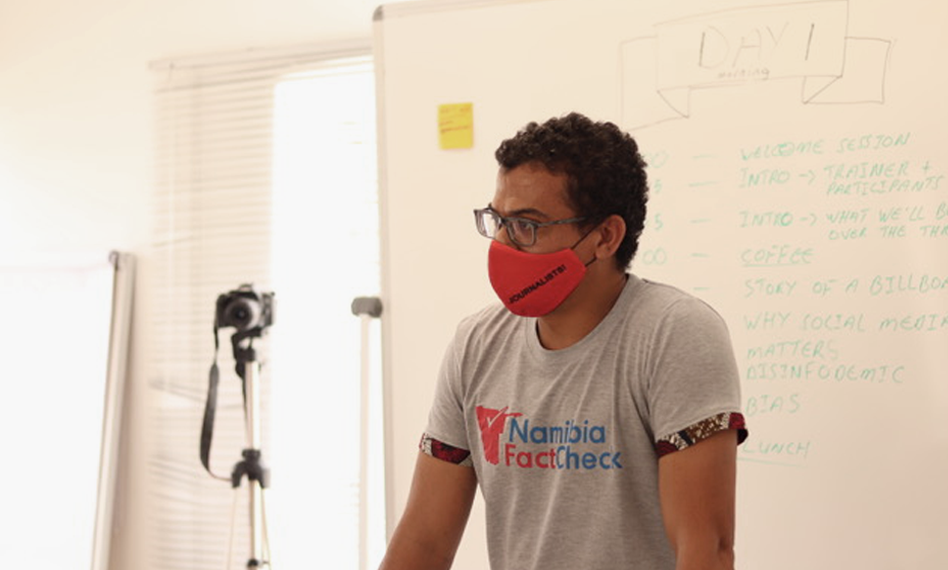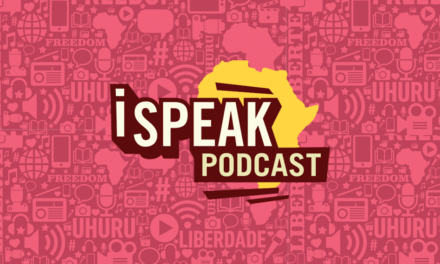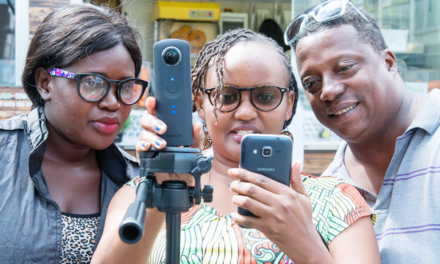
Journalism training: Meeting the demands of a changing industry

A New World
The practice of journalism has evolved since 1991, when the Windhoek Declaration on ‘Promoting Independent and Pluralistic Media’ was signed. Rapid developments and the use of information technologies, including mobile computing and increased access to the internet, have transformed how news is produced, distributed, and consumed. Journalists no longer have a monopoly over the news.
Audiences have become producers of news and now compete with professional journalists to break the news. Citizen journalism now both competes against and compliments professional journalism. Traditional media such as hard copy newspapers continue to lose readers to the likes of Google and Facebook. Traditional broadcasters are competing against video streaming services such as Netflix, Showmax, and Amazon Prime.
Today’s audiences spend more time on mobile smartphones than reading a print copy newspaper or watching the news on television. Google and Facebook dominate the news space though they are not publishers themselves in the strictest sense of the word.
Loss of audiences has consequently led to the loss of advertising revenue. As newsrooms lose advertising revenue, inevitably, they downsize and shut down. Many journalists have lost their jobs, the world over.
The current environment, which allows anyone to produce news, has led to the scourge of ‘fake ‘news. Collins dictionary named ‘fake news ‘ the word of the year in 2017. News websites with a propensity to create and spread rumours and falsehoods are on the increase in Africa. Social media sites such as Twitter, Facebook and WhatsApp are actively used to spread disinformation and misinformation.
The fourth industrial revolution brings new realities where machines rely on artificial intelligence to perform tasks that humans would typically perform. As a result, the journalism industry is being transformed as process automation, and the use of algorithms becomes more mainstream.
Newsrooms Adapting
Newsrooms are adapting. They are finding, as noted by Amy Schmitz Weiss, new forms of multimedia storytelling through mobile and tablet platforms, engaging audiences through social media channels, and employing new ways of doing investigative journalism with sophisticated data-driven techniques. A different set of skills is now required for journalists to thrive in this new environment. Whereas previously, there was a clear distinction between broadcasting and print, convergence is now the order of the day. It is no longer enough to be a prolific writer whose well-articulated pieces draw readers to newspapers printed pages. The changing landscape requires a storyteller capable of utilising written text, audio, and visuals. Therefore, journalism is no longer just about writing stories but content creation across different digital platforms.
Like other industries, the news industry is adapting to the new realities of the fourth industrial revolution (4IR). Newsrooms elsewhere are already experimenting with using bots and artificial intelligence to collect information and automate news production. Developments with machine learning and algorithms point to a future where there is an increase in automation of the news production process. Shujun Jiang and Ali Rafeeq argue that new job titles in newsrooms will include “enhanced reporter, augmented reality producer, bot developer, principal researcher, ecosystem manager, platforms manager, lead data scientist, and automation experience designer”. The training of journalists in this ever-changing environment needs to be agile enough to acknowledge these new trends and adapt accordingly.
In a society characterised by big data, it is no surprise that data journalism has become key in converged newsrooms. This data comes in the form of statistics, visuals, maps, financial flows, etc. As noted by Allen Munoriyarwa, there is an increase in data journalism uptake in African countries. Data journalism led to the exposure of corruption cases such as ‘State ‘capture’ in South Africa. There is, therefore, a need for journalists to be adequately trained so they can fully analyse big data. Data can be highly complex, and traditional journalism skills may not be able to unpack such complexities. Courses in data analytics are becoming increasingly crucial for the digital era journalist.
The days of big media houses employing multitudes of journalists are past. New online news websites are competing against traditional big media houses. In South Africa, respected titles such as Daily Maverick, Business Tech, and Moneyweb are exclusively distributed online. The same is happening in other Southern African countries such as Zimbabwe, Zambia, and Namibia. Traditional media houses have established an online presence with some introducing paywalls to try and recoup lost revenue. The paywall model has so far not managed to stem the tide of revenue loss because there are many equally good free sites online. In Zimbabwe, Alpha Media gave up on their paywall after failing to attract a significant number of subscribers. As journalists lose jobs, entrepreneurship is increasingly becoming a way out. Therefore, it is imperative that journalism training includes entrepreneurship to equip journalists with skills necessary to face a world with limited newsroom opportunities.
The Future is Digital: What Needs to be Done?
With journalism content now increasingly available online, are journalists adequately trained to meet the demands of this changing landscape? The prevalence of online media, demand that journalists are skilled differently from the days of traditional media dominance. If journalists are to meet the demands of a converged newsroom, it is vital that their training shifts from specialisations such as broadcasting and print.
Converged newsrooms require journalists capable of telling stories using all these formats. Lack of equipment, such as video cameras and audio recorders, is no longer an acceptable excuse. Training can utilise smartphones that can now perform all tasks of creating visuals, audio, and written text. The availability of editing apps for smartphones makes it possible for a journalist to create, for example, a news documentary without the need to employ a specialist video editor. Some universities, such as Rhodes University, University of Eswatini, University of Johannesburg, University of Cape Town, and the University of Botswana, are already implementing such training. Still, it is safe to say all training institutions need to follow this route.
Many editors complain that journalists who join media outlets straight from training institutions are not ready to work and often need several more weeks of training in the newsroom to do some decent work. While there are several arguments to this view, what is indisputable is that training needs to adapt to converged newsrooms’ needs. Training should emphasise data journalism, artificial intelligence and research skills in the digital era, and so on. The journalism curricular in Europe and the USA now contains several modules in digital media and electives relevant to digital realities. It is crucial that training institutions in Southern Africa are not left behind. Skills such as Google Analytics, HTML, and JavaScript have become vital for journalists and training institutions need to include such in their curricula as is already happening elsewhere in the world.
Basic coding skills are also becoming increasingly necessary. Institutions such as the Institute for the Advancement of Journalism (IAJ) based in South Africa help with short courses. It offers other short courses such as Mobile Journalism (MOJO), Social Media as Source and Platform, Becoming a Multimedia Journalist, etc. While these may help mid-career journalists, there is a need for universities and other diploma-giving institutions to adapt their curricula to train journalists who are ready for the evolving newsroom from day one. Organisations that offer journalism training, such as the Media Institute of Southern Africa, Media Monitoring Africa and IAJ mentioned above, need to work together with entities such as Code for Africa that leverage technology and data-driven practices for storytelling.
The prevalence of the so-called fake news necessitates that journalism curricula adapt to equip journalists to be relevant in this environment. Fact checking has become key in this environment where disinformation and misinformation are ubiquitous. Journalism training in Southern Africa needs to emphasise fact-checking if the profession is to maintain and regain some lost trust. Journalists need to be trained on how best to fact-check information before publishing. Working with organisations such as Africa Check may help training institutions. Perhaps it is time, as argued by Bruce Mutsvairo and Saba Bebawi, to have Fake News as a standalone module rather than as a component of other modules.
It is important to state that incorporating digital technologies does not negate the importance of theory in journalists’ training. There is a need for balance to avoid valorising technology over journalistic talent and an awareness of complexities of world politics, economy, and social and cultural realities that help contextualise the news. If theory was not important, then IT professionals could just be employed in newsrooms. The changing environment still requires journalists capable of providing deep analysis of world events. This only now needs to be done in multimedia forms so stories can be disseminated via different platforms.
PHOTO: Fact checking has become key in this environment where disinformation and misinformation are ubiquitous. Namibia Fact Check and the Namibia Media Trust (NMT) provide training for journalists and media students on social media verification. Image courtesy of the NMT.








